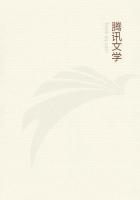HOMER: `Born Sarpedon, that bold and godlike man.'
HESIOD: `Now we have lingered thus about the plain of Simois, forth from the ships let us go our way, upon our shoulders --'
HOMER: `Having our hilted swords and long-helved spears.'
HESIOD: `Then the young heroes with their hands from the sea --'
HOMER: `Gladly and swiftly hauled out their fleet ship.'
HESIOD: `Then they came to Colchis and king Aeetes --'
HOMER: `They avoided; for they knew he was inhospitable and lawless.'
HESIOD: `Now when they had poured libations and deeply drunk, the surging sea --'
HOMER: `They were minded to traverse on well-built ships.'
HESIOD: `The Son of Atreus prayed greatly for them that they all might perish --'
HOMER: `At no time in the sea: and he opened his mouth said:'
HESIOD: `Eat, my guests, and drink, and may no one of you return home to his dear country --'
HOMER: `Distressed; but may you all reach home again unscathed.'
When Homer had met him fairly on every point Hesiod said:
`Only tell me this thing that I ask: How many Achaeans went to Ilium with the sons of Atreus?'
Homer answered in a mathematical problem, thus:
`There were fifty hearths, and at each hearth were fifty spits, and on each spit were fifty carcases, and there were thrice three hundred Achaeans to each joint.'
This is found to be an incredible number; for as there were fifty hearths, the number of spits is two thousand five hundred; and of carcasses, one hundred and twenty thousand...
Homer, then, having the advantage on every point, Hesiod was jealous and began again:
`Homer, son of Meles, if indeed the Muses, daughters of great Zeus the most high, honour you as it is said, tell me a standard that is both best and worst for mortal-men; for I long to know it.' Homer replied: `Hesiod, son of Dius, I am willing to tell you what you command, and very readily will I answer you. For each man to be a standard will I answer you. For each man to be a standard to himself is most excellent for the good, but for the bad it is the worst of all things. And now ask me whatever else your heart desires.'
HESIOD: `How would men best dwell in cities, and with what observances?'
HOMER: `By scorning to get unclean gain and if the good were honoured, but justice fell upon the unjust.'
HESIOD: `What is the best thing of all for a man to ask of the gods in prayer?'
HOMER: `That he may be always at peace with himself continually.'
HESIOD: `Can you tell me in briefest space what is best of all?'
HOMER: `A sound mind in a manly body, as I believe.'
HESIOD: `Of what effect are righteousness and courage?'
HOMER: `To advance the common good by private pains.'
HESIOD: `What is the mark of wisdom among men?'
HOMER: `To read aright the present, and to march with the occasion.'
HESIOD: `In what kind of matter is it right to trust in men?'
HOMER: `Where danger itself follows the action close.'
HESIOD: `What do men mean by happiness?'
HOMER: `Death after a life of least pain and greatest pleasure.'
After these verses had been spoken, all the Hellenes called for Homer to be crowned. But King Paneides bade each of them recite the finest passage from his own poems. Hesiod, therefore, began as follows:
`When the Pleiads, the daughters of Atlas, begin to rise begin the harvest, and begin ploughing ere they set. For forty nights and days they are hidden, but appear again as the year wears round, when first the sickle is sharpened. This is the law of the plains and for those who dwell near the sea or live in the rich-soiled valleys, far from the wave-tossed deep: strip to sow, and strip to plough, and strip to reap when all things are in season.' (3)Then Homer:
`The ranks stood firm about the two Aiantes, such that not even Ares would have scorned them had he met them, nor yet Athena who saves armies. For there the chosen best awaited the charge of the Trojans and noble Hector, ****** a fence of spears and serried shields. Shield closed with shield, and helm with helm, and each man with his fellow, and the peaks of their head-pieces with crests of horse-hair touched as they bent their heads: so close they stood together. The murderous battle bristled with the long, flesh-rending spears they held, and the flash of bronze from polished helms and new-burnished breast-plates and gleaming shields blinded the eyes. Very hard of heart would he have been, who could then have seen that strife with joy and felt no pang.'
(4)
Here, again, the Hellenes applauded Homer admiringly, so far did the verses exceed the ordinary level; and demanded that he should be adjudged the winner. But the king gave the crown to Hesiod, declaring that it was right that he who called upon men to follow peace and husbandry should have the prize rather than one who dwelt on war and slaughter. In this way, then, we are told, Hesiod gained the victory and received a brazen tripod which he dedicated to the Muses with this inscription:
`Hesiod dedicated this tripod to the Muses of Helicon after he had conquered divine Homer at Chalcis in a contest of song.'
After the gathering was dispersed, Hesiod crossed to the mainland and went to Delphi to consult the oracle and to dedicate the first fruits of his victory to the god. They say that as he was approaching the temple, the prophetess became inspired and said:
`Blessed is this man who serves my house, -- Hesiod, who is honoured by the deathless Muses: surely his renown shall be as wide as the light of dawn is spread. But beware of the pleasant grove of Nemean Zeus; for there death's end is destined to befall you.'

